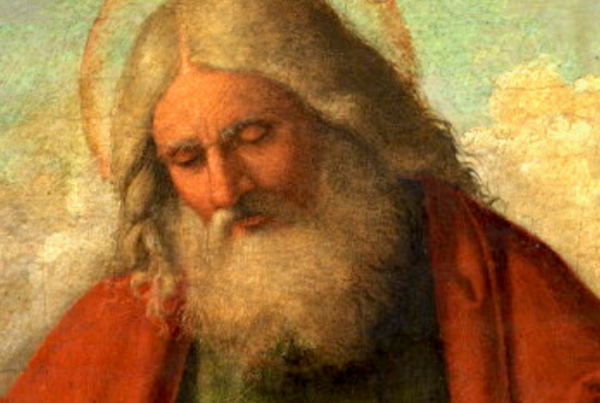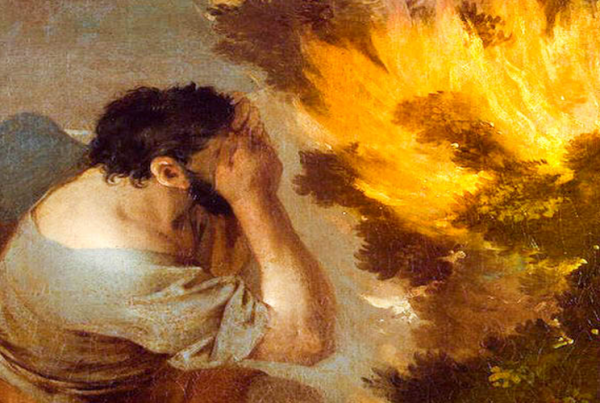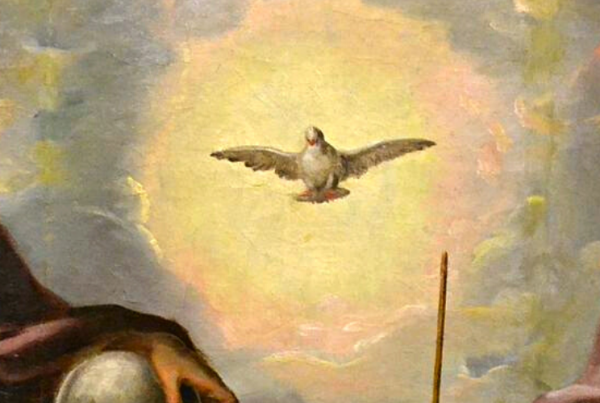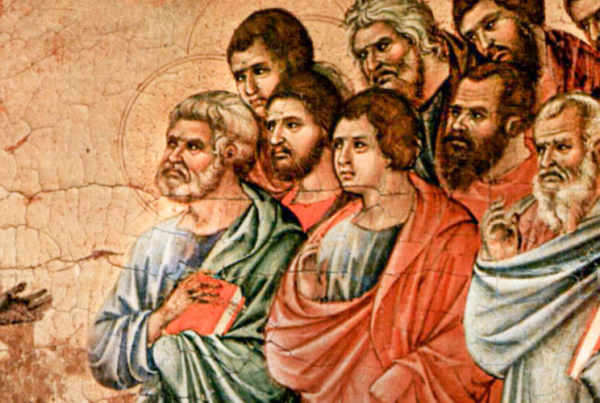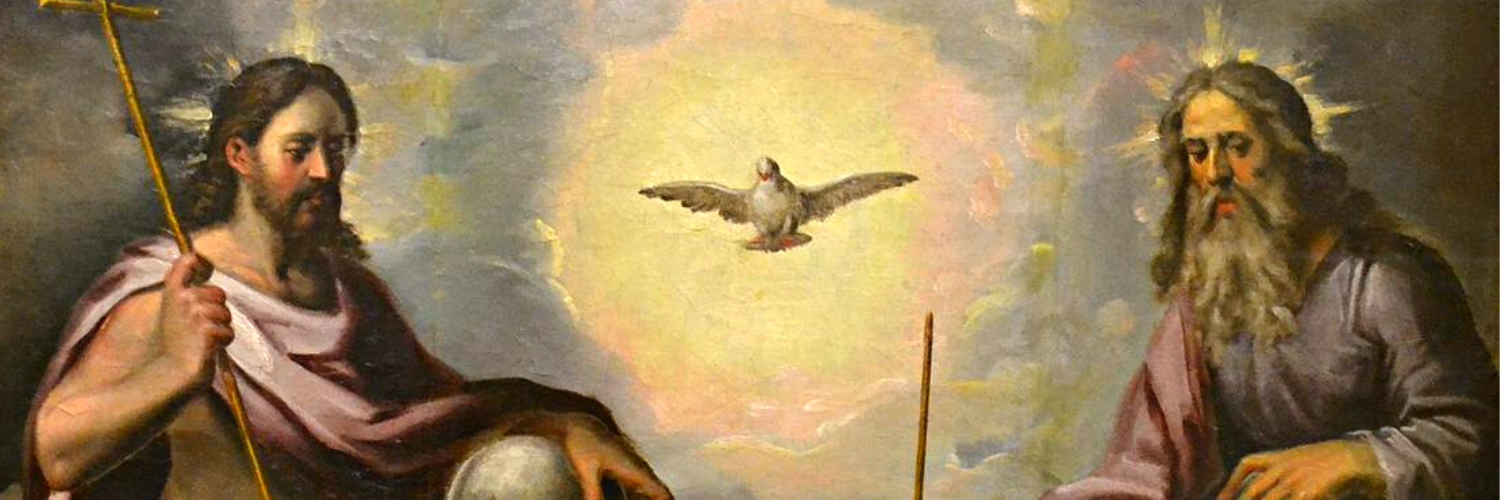
God is Father, Son, and Holy Spirit
Fr. Paul Stein
Perhaps you have seen it, though it is rare these days: the bumper sticker that states, “God is love.” Perhaps you have seen it and thought, “everyone believes that.” To the contrary, everyone does not believe that, because not everyone is Christian, let alone Catholic Christian.[1] “Love” is a Christian title for God which requires the one God to simultaneously be a Trinity of persons. God is the Father, Son and Holy Spirit.
Love always requires at least two persons. If your best friend tells you that she is in love, the first question you will ask her is: who? What’s his name? When we say “God is love (1 John 4:8),” we are describing what he is, not simply what he does. It is the difference between a noun and a verb. When we claim that God is love, that is what God is in himself, apart from and “before” he made the angels, humans, and everything else. That means that God is, in himself, at least two persons; in the end, we learn that love requires three persons.[2]
This revelation of God as love, or as a Trinity of persons comes from Jesus himself. Jesus claimed himself to be the Son whom the Father sent (John 5:23), and the Father would send the Holy Spirit in his name (John 14:26).
"That means that God is, in himself, at least two persons; in the end, we learn that love requires three persons."
Moreover, Jesus shows us, by coming to suffer and die on a cross save us, that God/love is the total self-emptying of oneself for another person. Jesus made a total self-gift of himself for us and shows us that God himself is the total self-gift of one person to another.
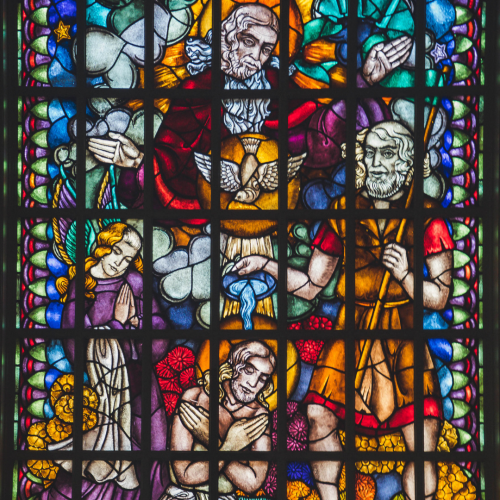
The Father, who is 100% God, loves the Son. So, the Father totally empties himself – he makes a 100% gift of his Being as God – to the Son. The Son, receives 100% of the Father’s Being, his existence, and is thus also 100% God. It is just that the Son is not the Father, he is a different person. The Son loves the Father, and so he gives 100% of his existence back to the Father. The two persons share one existence. This shared existence, which is 100% God’s Being, is the Holy Spirit. That is why St. Augustine in his work, On the Trinity, writes of God being the Lover, the Beloved, and the Bond of Love they share. This sharing of their existence, of their very self, is eternal, meaning that it happens outside of time. Thus, the Father is always giving himself to the Son, and the Son is always reciprocating, giving himself to the Father, which is their Holy Spirit. God is three persons perfectly sharing one existence as the dynamic of total self-giving.
It is helpful to keep in mind that today, the word “person” usually means a specific human being. Thus, three persons immediately implies three separate human beings. However, in Catholic thought, a “person” is a unique identity, not another being. It is what makes you, you and not another. When you say, “I believe,” you mean not Harry, Sally, this guy or that gal. “I” indicates that there is something unique present that cannot be repeated anywhere else. For example, identical twins both have the exact same DNA, yet each is a distinct person, or identity. If someone were to clone you – which is immoral – your clone would still be a different person than you.
Jesus is truly human; he has a human body and soul. He has a human personality; it is the total of what he likes and dislikes, what he finds humorous, and so on. Yet, he is not a human person, but a divine person. The distinction between person and personality can be understood this way: while your personality may change over time, you are always the same person. He is the Son, the second person of the Trinity. Jesus is a divine person who exists two ways: as God and as man. For this reason, in the Church a “person” doesn’t necessarily mean a human being. In fact, the one God is three persons.
What This Means For Us
Knowing that God is Love explains so much. Why does God love? Because that is what he is.[3] Since God is infinite, perfect in himself, and already the relationship of three persons: why did God make a creation he doesn’t need? In a word: love. Love is its own reason. After we, finite humans, rebelled against God through sin: why didn’t he just wipe us out? In a word: Love. Why did God become human in Jesus Christ, and then suffer and die on a cross to save us sinners? In a word: love.
Footnotes
[1] The word Christian applies to all those who believe Jesus is the God-man, who is the second person of the Trinity, and suffered, died and rose from the dead to save us from sin and everlasting death in hell. As such, Christians include: Catholics, Protestants, Orthodox, Assyrians, Copts, and a number of other groups.
[2] One may think of human love, where there is only a man and woman involved; the math would seem to indicate only two persons. However, humanity only exists and continues to exist because of God. Thus, even human love requires three persons, or two human persons and the love of the Trinity.
[3] God loving his creation because he is love, shows that the verb follows the noun. What God does flows from what he is. In more technical terminology: action follows being.
FOR FURTHER READING ON THIS TOPIC
